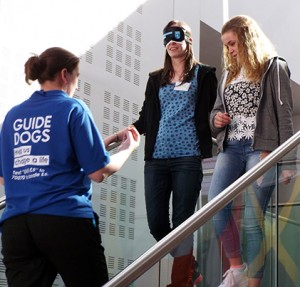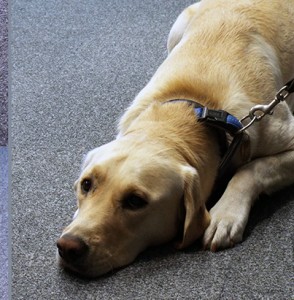What does your email address say about you? It is important that you make the right first impression when contacting employers, whether it’s to apply for a job or to ask for a work placement, this short video explains why…
Author Archives: Alison German
National Minimum Wage Rate Changes: 1 October 2015
It’s coming up to that time of year again. From Thursday October 1 2015 the National Minimum Wage hourly rates are increasing.
The new rates will be as below:
- £6.70 for those aged 21 and over – a 20p increase from £6.50
- £5.30 for 18 – 20 year olds – a 17p increase from £5.13
- £3.87 for Under 18 year olds – a 8p increase from £3.79
- £3.30 for apprentices in their first year or those aged 16 – 18. This is a 57p increase from £2.73
Please do remember that all increases must be implemented for both existing staff as well as for new recruits.
It is also worth noting that as of April 2016, the national living wage will be introduced. This is for workers who are aged over 25 and the hourly rate will be £7.20.
For further information about these changes please visit the gov.uk website.
Guide Dogs Visit Veterinary Nursing Students
A big thank you to Guide Dogs (including the gorgeous Woody!) for coming along to visit our second and fourth year veterinary nursing degree students at Edinburgh Napier University last week.
It was an extremely informative day that enabled students to learn about how to approach a blind client and work with a guide dog within a veterinary practice setting.


European Day of Languages: 26 September 2015!
Did you know that 26 September 2015 is the 14th annual European Day of Languages?
The European Union covers 28 countries, 4,324,782 km2 and has over 500,000,000 people. Just to complicate things, they use 24 official languages and around 150 regional and minority languages! According to an EU survey in 2006, 56% of EU citizens spoke more than one language – not bad! The most common first language in the EU is Russian (150 million speakers), followed by German (c. 95 million), Turkish (80 million), and English and French (65 million each.) Worried about English speaking? Don’t be – it’s the most popular second language in Europe!
So why have a European Day of Languages?
- to alert the public to the importance of language learning and diversify the range of languages learned in order to increase plurilingualism and intercultural understanding;
- to promote the rich linguistic and cultural diversity of Europe;
- to encourage lifelong language learning in and out of school.
Benefits of being bilingual:
- More than 150 studies confirm that bilingualism improves memory, communication, independence, and awareness.
- Jobs, jobs, jobs! Employers are on the lookout for people with language skills; more and more business is taking place internationally, and you could be a hot commodity in the job market.
- According to the New York Times, speaking more than one language can even protect from the effects of Alzheimer’s disease – making your mental muscles work really helps!
It’s easier than ever before to learn a new language – from online and offline schools, to Youtube videos and free apps like Duolingo, you can learn something new for free!
Celebrate the European Day of Languages by telling us on Facebook or Twitter about what your favorite language is!
London Vet Show Discount for CAW Students
For a limited time, London Vet Show are offering students at The College of Animal Welfare (veterinary nursing, veterinary care assistant or animal care) the opportunity to attend this year’s show on 19/20 November for just £75+VAT (with further discounts available if two or more places are booked).
To take advantage of this offer please contact Chris on c.jesson@closerstillmedia.com
International Youth Day: 12 August 2015
The theme of International Youth Day 2015 is “Youth Civic Engagement.” The engagement and participation of youth is essential to achieve sustainable human development. Yet often the opportunities for youth to engage politically, economically and socially are low or non-existent.
More efforts are needed to raise awareness about the importance of youth civic engagement and its benefits to the individual and to society, including for sustainable development as well as resilience and wellbeing. The International Youth Day 2015 campaign aims at promoting civic engagement and participation of youth in politics and public life, so that young people can be empowered and bring a full contribution to society, development and peace. You can be part of these efforts!
More information can be found here.
For those students in the UK, a free evening of networking and micro pitches will be held in London on 12 August 2015 from 6.30-8.30pm. More information can be found here.
Other events across the world can be found here.
CAW Student, Dale Walter, is announced as Apprentice of the Year!
We are delighted to hear that Dale Walter, Apprenticeship in Animal Care student at The College of Animal Welfare who works at Completely K9 Hydrotherapy and Rehabilitation in Canvay Island, has been awarded Castle Point Council’s Apprentice of the Year 2015!

Dale Walter, Castle Point ‘Apprentice of the Year 2015’, fourth from left.
Dale, 21, who was unemployed just over a year ago was offered work experience as an animal care assistant at Completely K9. Impressed by his hard work, the owners offered him an apprenticeship for which Castle Point Council awarded him the accolade of ‘Apprentice of the Year 2015’; Dale has now been offered a full-time job at Completely K9.
Former Tory leader, Iain Duncan Smith, visited Dale at Completely K9 earlier this year and got the opportunity to hear first-hand from Dale about how the apprenticeship had changed his life.
Congratulations Dale, we wish you all the best of luck for the future.
Find out more about Apprenticeships in Animal Care at The College of Animal Welfare.

Extra day release Level 3 Diploma in Veterinary Nursing course added at Potters Bar due to high demand!
Due to high demand this year, we will be running an additional day release Level 3 Diploma in Veterinary Nursing programme at our Potters Bar centre this September.
This programme is for those students who are already employed in a veterinary practice as a student veterinary nurse. The current Monday group will run as planned; the additional class will be on a Tuesday.
All those who have applied for the programme will be contacted to see if they wish to remain on the Monday course or move to the Tuesday.
It’s great news for us to have so many practices training new students! More information on this programme can be found on our website.
If you have a 24+ Learning Loan, you may be eligible for extra financial help!
Are you aged 24 or over and have a 24+ Learning Loan to fund your course?
Do you have financial worries which are getting you down?
 If so, you may be eligible to apply to the discretionary bursary for assistance with the cost of travel, childcare and compulsory course materials/equipment.
If so, you may be eligible to apply to the discretionary bursary for assistance with the cost of travel, childcare and compulsory course materials/equipment.
To apply, you must have an approved 24+ Advanced Learning Loan and be from a low income household (ordinarily under £20,000 per year).
The discretionary bursary is unable to help with the cost of registration, tuition, exam, visits and additional activity fee.
For further information on how to apply for the Bursary Fund, please contact Dani Beaty at The College of Animal Welfare on 01480 422060 or email dbeaty@caw.ac.uk
Open letter regarding the National Minimum Wage in relation to veterinary nursing students on work placement
Dear Employer
You may be aware of a recent notice issued by the Royal College of Veterinary Surgeons (RCVS) concerning a change in the hours requirements for student veterinary nurses applying for registration once qualified following recent changes to the National Minimum Wage (NMW) legislation.
A number of veterinary practices have contacted The College of Animal Welfare to clarify the position regarding The College of Animal Welfare students that are on placement in their practices.
The College of Animal Welfare sought legal opinion in 2012 and again more recently, one of our higher education partners did the same. In both cases the advice was consistent in that students could undertake the length of placement period required by the RCVS VN Byelaws without being deemed to be a ‘worker’ as the NMW regulations only applies to ‘workers’.
By coincidence, a few days before the RCVS issued their recent change in the Rules of Registration for Veterinary Nurses which removed the minimum of 60 weeks length of placement but still keeping the 2,100 hours requirement we had discussed with our solicitors (K&L Gates) our intention to seek a refresh of their 2012 opinion.
This letter and accompanying flow chart has been approved by our solicitors, K&L Gates (a leading London based firm of solicitors www.klgates.com) as being in keeping with their advice.
Please note, however, that the information contained in this letter is provided for informational purposes only and does not contain or convey legal advice on the part of The College of Animal Welfare or K&L Gates. Accordingly, you should contact your own legal advisers or membership association legal help service for an independent opinion and the information contained in this letter should not be used or relied upon in regard to any particular facts or circumstances without first seeking such legal advice.
Firstly may I confirm that if the student veterinary nurse in your practice is an employee of your practice then the NMW will apply.
The minimum rate of pay that your employed student must receive is dependent on their age with a special rate applying for those students who are undertaking an Apprenticeship in Veterinary Nursing. Please note that in Scotland there is not an Apprenticeship in place for Veterinary Nursing. To find out more about the current NMW pay rates please follow this link. https://www.gov.uk/national-minimum-wage-rates.
In relation to unpaid students on placement it is worth noting that the law in this area is untested in the courts and therefore our lawyers’ opinion is exactly that i.e. their opinion and cannot be taken as an absolute guarantee however I have been party to another leading firm of solicitors’ opinion which concurs with this opinion. Please note that in the event of a challenge the responsibility for the student being paid the NMW would rest with the employer (i.e. placement) and not the course provider or the RCVS.
In order to assist you to determine whether or not the NMW might apply to your student on unpaid placement we have created a flow chart that you can follow.
You can download the flow chart here.
The requirements of the NMW only apply to ‘workers’ and so if the person is not a ‘worker’ then it does not apply. This is the fundamental test of the NMW and one which is easy to miss.
Thus in relation to students on placement then for the NMW to apply their status has to be determined as that of a ‘worker’ and to be a ‘worker’ there has to be consideration (something of value) passing both ways between the employer and the employee and vice versa.
In its most simplistic terms if the student on placement is paid or receives something of value in return for their contribution towards the activities of the placement provider’s organisation then they become a ‘worker’ and once deemed to be a ‘worker’ then the requirements of the NMW apply.
However even if the student is determined to be a ‘worker’ then there is an exemption to paying the NMW to students who are undertaking an Further Education or Higher Education programme that states that if the placement does not exceed one year then the requirements of the NMW do not apply.
Thus if you were to decide to pay a student on placement in your practice it does not have to be at the NMW pay rate for their age if the length of placement in your organisation does not exceed one year in length. In fact the pay rate could be zero. If the placement is longer than one year in your organisation then the employer would have to pay at least the NMW to that student because they are now deemed to be a ‘worker’.
To apply the legal requirements to our courses firstly please appreciate that it differs according to the individual placement arrangements set up within each course. The College of Animal Welfare offers broadly two formats of Veterinary Nurse training to non-employed students.
The first is where the placement is undertaken in a block format.
The courses that use this format are the Level 3 Diploma (full time block release) course delivered from our Huntingdon and Edinburgh centres and the three higher education programmes offered in collaboration with Middlesex University, The Royal Veterinary College and Edinburgh Napier University. The block format also applies to the Level 3 Diploma in Equine Veterinary Nursing provided at our Huntingdon centre. For all of these programmes the placement is not continuous but rather broken into blocks of placements that are less than one year which are individually organised and where students are encouraged to move around to gain a wider practice experience although they may choose not to do so.
If the placement changes the status of the student to that of a ‘worker’ for example by paying the student then because of the block nature of these programmes employers should be able to rely on the exemption as there are not any block of placements within these programmes that are a year in length.
The second format is a form of day release and would include the Level 3 Diploma in Veterinary Nursing offered by The College of Animal Welfare from Leeds, Huntingdon, Wigan and North London. These programmes work on a day release principle of one day in college and the remaining learner time being spent on placement.
The placement arrangement is almost continuous over 24 months (although there is a short summer break between year 1 and 2) and it is almost certain that students will remain in one single organised placement from start to finish. There are no clearly defined breaks requiring placement to be re-organised apart possibly the summer break mentioned above although it is often the case that the dates of the students summer holiday break are agreed between the student and the placement in the same way as employed staff would be.
If the placement has paid the student and thereby changed their status to that of a ‘worker’ then because of the continuous nature of the placement within these programmes we would recommend that at 12 months the student is moved to a different organisation or the employer offers the student employment. This could be as an Apprentice in which case the NMW Apprenticeship rate, which is lower, could be offered.
To avoid students on placement becoming ‘workers’ placements should not pay or provide the student with benefits or any other form of “consideration” during their placement. In this way the NMW would not apply.
In conclusion:
a) Provided the student on placement in your practice does not become a ‘worker’ then the NMW will not apply for their entire course even if longer than one year.
b) If you have given the student some form of consideration and thereby have made them a ‘worker’ whilst they are on placement then do not extend their placement beyond 12 months unless you are prepared to employ and pay them the NMW or if it is available from the provider (clearly not with degrees) then offer the student an Apprenticeship with pay at least at the NMW rate for Apprentices. The length of the Apprenticeship could be limited in time until they cease being an Apprentice by either successfully completing the Apprenticeship (i.e. qualifying), not achieving (e.g. failing examinations) or withdrawing.
It is worth noting that all placements organised by The College of Animal Welfare are done so on a non-payment basis which is fully explained to the students during interview, induction and enrolment. Any arrangement to recompense the student for their time in placement is an arrangement directly between the placement and the student and does not involve the College.
Please note that the above position does not affect the RCVS requirement that practices must inform The College of Animal Welfare before they invite a student to perform additional placement hours outside of the scheduled programme placement periods in order for the students to maintain their status as an enrolled student veterinary nurse under Schedule III of the Veterinary Surgeons Act during these additional hours and have such additional hours counted towards their training hours total. The College of Animal Welfare’s acceptance of such a request does not give an opinion with respect to any financial arrangements made between the practice and the student for such additional hours.
It should be said that some students on placement may resent not being paid especially when they are working alongside paid student veterinary nurses performing the same tasks and working just as hard as they are. As a result we are seeing more practices take a reputational and strategic view and pay the students even when they know they are not necessarily legally required to do so. Of course once qualified the veterinary nurses are in high demand by both employers and increasingly locum agencies although we are seeing the vast majority of our newly qualified students being offered their first RVN job by their existing placements and usually months before they even qualify.
I hope that you find this letter and the flow chart useful but, as stated above, you might find it more appropriate to contact your own legal advisers or membership association legal help service for an independent opinion.
Yours sincerely
Leslie Heaton-Smith
Marketing & Development Director
Last Updated: 28 November 2019